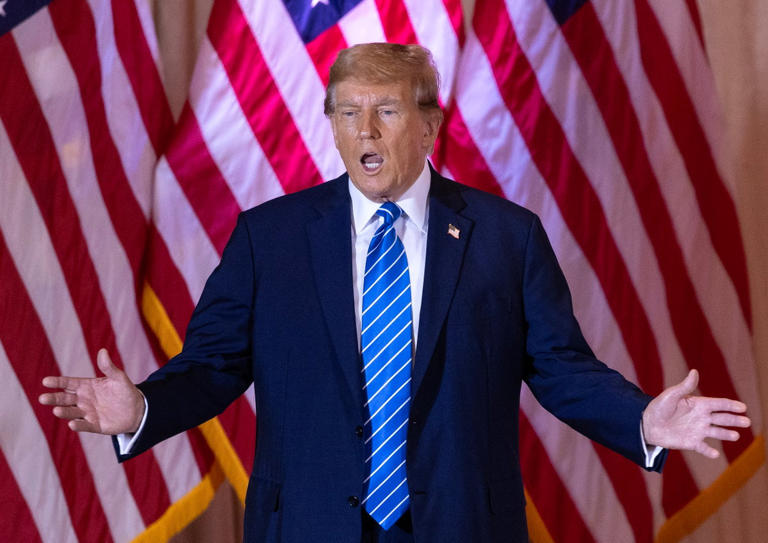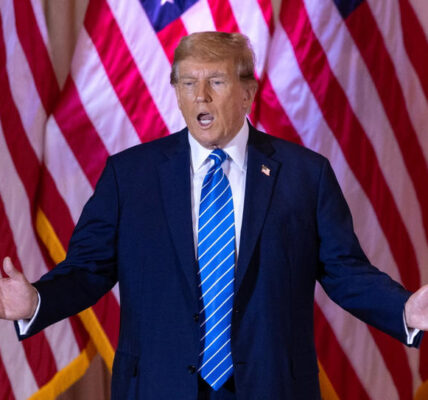UK-US Trade Deal Tariffs bring major changes to trade between the two countries, lifting duties on steel, cars, and agriculture while opening markets and protecting national interests.

© REUTERS
The UK-US Trade Deal Tariffs agreement has been officially unveiled, aiming to cut down trade barriers and strengthen economic ties between the United Kingdom and the United States. This is the first such deal signed by the US since President Donald Trump took office, and it’s already being seen as a significant win for British businesses—especially those in the steel, automotive, and farming sectors.
Let’s break down the key points of the UK-US Trade Deal Tariffs and what they mean for businesses and consumers on both sides of the Atlantic.
Steel and Aluminium Tariffs Removed
One of the most important features of the UK-US Trade Deal Tariffs is the removal of the 25% US tariff on British steel and aluminium. This gives a much-needed lifeline to the UK’s steel industry, which has been struggling in recent months.
In return, the UK has agreed to start working on aligning with the US requirements for supply chain security related to these materials. This change helps restore competitiveness for UK steel and aluminium producers exporting to America.
Car Tariffs Significantly Cut
Under the UK-US Trade Deal Tariffs, American tariffs on British cars have been slashed from 27.5% to 10% for the first 100,000 vehicles exported annually. This is a huge relief for UK car manufacturers, many of whom feared losing access to the vital US market.
Even better, car parts used in these exported vehicles will also get favourable trade treatment, easing pressure on UK suppliers and production lines.
Other Goods Still Face a 10% Baseline Tariff
Despite the progress, a 10% basic tariff still applies to most other traded goods between the UK and US. This was labelled a “reciprocal” tariff by Trump, and for now, it remains in place.
However, discussions are ongoing to reduce or eliminate more of these tariffs in future negotiations. According to Prime Minister Sir Keir Starmer, the two governments are still “hammering out details” to lower barriers in other sectors affected by tariffs.
Preferential Treatment on Future Tariffs
As part of the UK-US Trade Deal Tariffs, the UK has been promised favourable treatment in any new US tariffs imposed on national security grounds. This means that if new import taxes are introduced, Britain may either be exempt or receive lighter terms compared to other countries.
Pharmaceuticals and Future Discussions
British pharmaceutical products are currently not facing US tariffs, but President Trump had previously floated the idea of imposing new charges on medicines and ingredients from abroad.
The deal doesn’t change current conditions but includes a promise from both sides to negotiate preferential treatment for UK pharmaceutical firms. The UK also committed to improving the overall environment for life sciences companies based in Britain.
Agricultural Market Access Opened
The UK-US Trade Deal Tariffs includes big changes for the agricultural sector. UK beef farmers will now be able to export up to 13,000 metric tonnes of beef to the US tariff-free. This is the first time the US market has been opened to UK beef producers, joining other nations like Australia.
On the flip side, US farmers have also been granted the same quota to export beef to the UK without tariffs. UK tariffs on American beef, which were as high as 125% in some cases, will be brought down to zero within the quota.
The UK government says it has maintained its “red lines” on food standards, ensuring that imported goods still meet local safety and welfare regulations.
Additionally, the UK will eliminate tariffs on 1.4 billion litres of US ethanol, which is widely used in beer production.
Non-Tariff Cooperation and Digital Trade
Beyond physical goods, the UK-US Trade Deal Tariffs includes important agreements on non-tariff measures. Both countries committed to working together to protect their economies from unfair practices by third countries, like China.
There’s also a joint pledge to enhance investment and export security and better monitor high-risk technologies and vendors.
Another significant step is their agreement to negotiate ambitious rules around digital trade. This could affect industries like online banking, insurance, and fintech, helping to ease digital transactions between both nations.
Improved Tax Compliance
As part of the UK-US Trade Deal Tariffs, both countries will now cooperate more closely on customs enforcement. This includes tackling tax evasion on imports and exports, a move expected to boost public revenues and improve trade transparency.
What’s Not in the Deal
Despite speculation, the UK-US Trade Deal Tariffs does not include any mention of the NHS. There are also no provisions related to the UK’s Digital Services Tax or the Online Safety Act.
Business Secretary Jonathan Reynolds made it clear that these sensitive areas were off the table, saying: “There is nothing in this agreement in relation to online harms, digital services tax, or the NHS.”
The Political Context
Prime Minister Sir Keir Starmer praised the deal as a major achievement, especially in the face of pressure to walk away from negotiations. “We did the hard yards. We stayed in the room,” he said, highlighting the importance of patience and diplomacy in securing the UK-US Trade Deal Tariffs.
Critics like Lib Dem leader Sir Ed Davey had previously called for a tougher approach with the US president, but the final deal suggests the government opted for long-term strategy over short-term confrontation.
Terms and Cancellation
The UK-US Trade Deal Tariffs includes a clause that allows either country to withdraw from the agreement with written notice. More discussions will be held in the future to decide how the deal can be updated, reviewed, or terminated.
Conclusion
The UK-US Trade Deal Tariffs represent a major step forward in transatlantic relations. By removing key tariffs, opening up markets, and promoting cooperation in non-tariff areas, the deal offers real opportunities for businesses on both sides.
While not perfect or complete, it sets a foundation for deeper trade ties and continued negotiation. For British exporters and US partners alike, this agreement signals a fresh chapter in economic partnership.
Related:
UK Economic Growth 2025: 7 Surprising Wins for Britain’s Economy!



